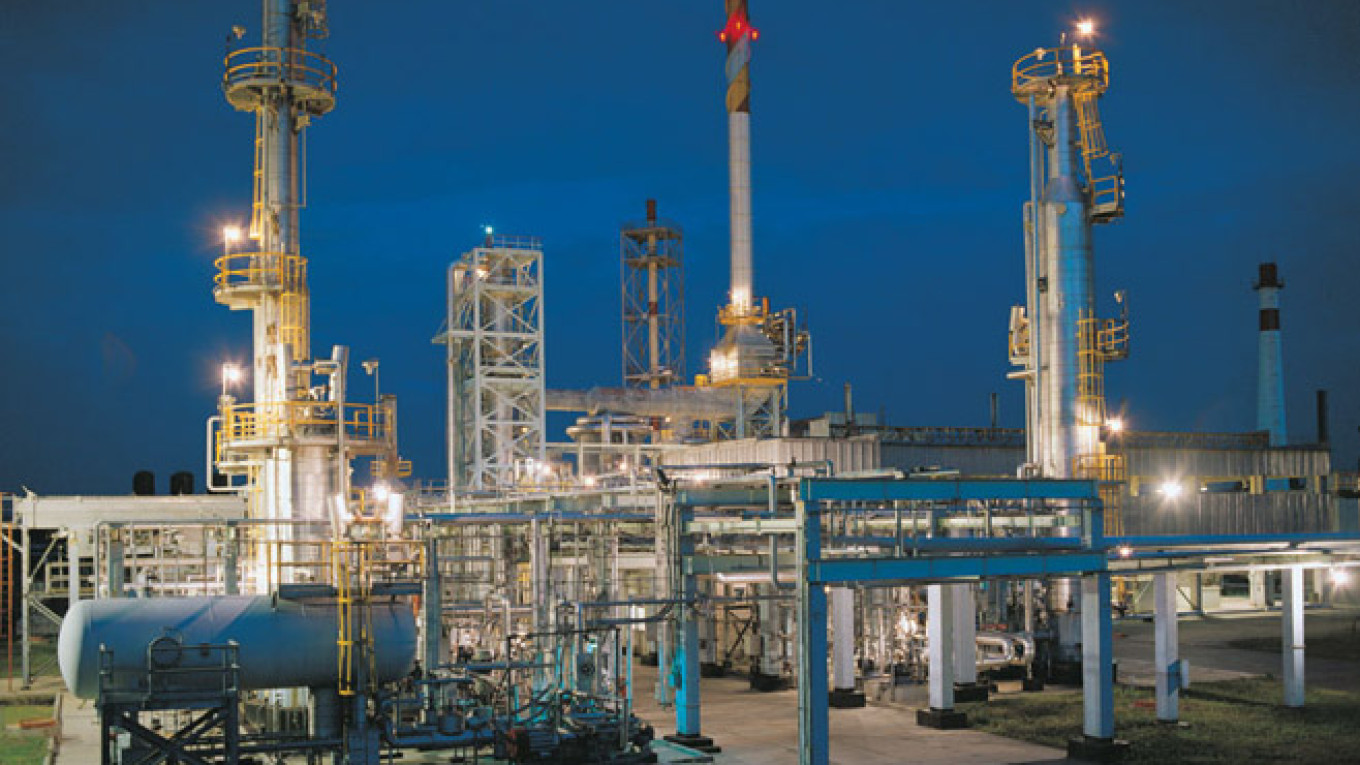KIEV — Ukraine's government on Wednesday proposed splitting the debt-laden state-controlled gas company Naftogaz into three separate businesses to comply with European Union rules regulating competition in the energy sector and eventually shore up profitability.
The embattled company owes Russia's Gazprom more than $5 billion, Moscow says, and has few resources to settle the bill as it pays more for Russian gas than it sells to Ukrainian consumers thanks to state subsidies.
"Naftogaz will deal exclusively with trading gas," Prime Minister Arseniy Yatsenyuk told a regular government meeting on Wednesday. "A Ukrainian gas transportation system company, which will transport gas, and a company that will store gas underground will be created."
The proposal is in line with the EU practice of keeping gas transportation companies separate from gas buyers and sellers to avoid any potential domination of pipelines or a monopoly over pipeline tariffs by a single energy company.
Energy Minister Yuri Prodan confirmed the decision to create the two new entities had been taken by the government during Wednesday's meeting, which was later closed to media.
Interfax cited him as saying that several laws need to be passed in order to strengthen the independence of the gas transport system.
At the moment, the pipeline system and underground storage are both under the control of Ukrtransgaz, which is 100 percent owned by Naftogaz.
Reform of Naftogaz has been on the cards for years and could be one solution to the perpetual wrangling between Kiev and Moscow over Ukraine's gas debts, which have disrupted supply to Europe in the past. Taking steps to make Naftogaz profitable could increase the company's ability to pay its bills on time.
Ukraine's government, in place since the February ousting of pro-Russian President Viktor Yanukovych and seeking to move closer to the EU, has already increased consumer gas prices by 50 percent.
Naftogaz, however, would still be running a deficit of 80 billion hryvnia ($8 billion) this year even after the price increase, officials said.
The government is expected to issue a decree on Wednesday that may include more details on how and when the company will be split.
Reforming Naftogaz and cutting its debts have been conditions of an International Monetary Fund bailout.
The IMF announced at the end of March a $14-18 billion standby credit that will unlock further aid from the European Union, the United States and other lenders over two years, effectively pulling Kiev closer to Europe.
See also:
Ukraine's Naftogaz Proposes Contract Changes to Russia's Gazprom
A Message from The Moscow Times:
Dear readers,
We are facing unprecedented challenges. Russia's Prosecutor General's Office has designated The Moscow Times as an "undesirable" organization, criminalizing our work and putting our staff at risk of prosecution. This follows our earlier unjust labeling as a "foreign agent."
These actions are direct attempts to silence independent journalism in Russia. The authorities claim our work "discredits the decisions of the Russian leadership." We see things differently: we strive to provide accurate, unbiased reporting on Russia.
We, the journalists of The Moscow Times, refuse to be silenced. But to continue our work, we need your help.
Your support, no matter how small, makes a world of difference. If you can, please support us monthly starting from just $2. It's quick to set up, and every contribution makes a significant impact.
By supporting The Moscow Times, you're defending open, independent journalism in the face of repression. Thank you for standing with us.
Remind me later.


